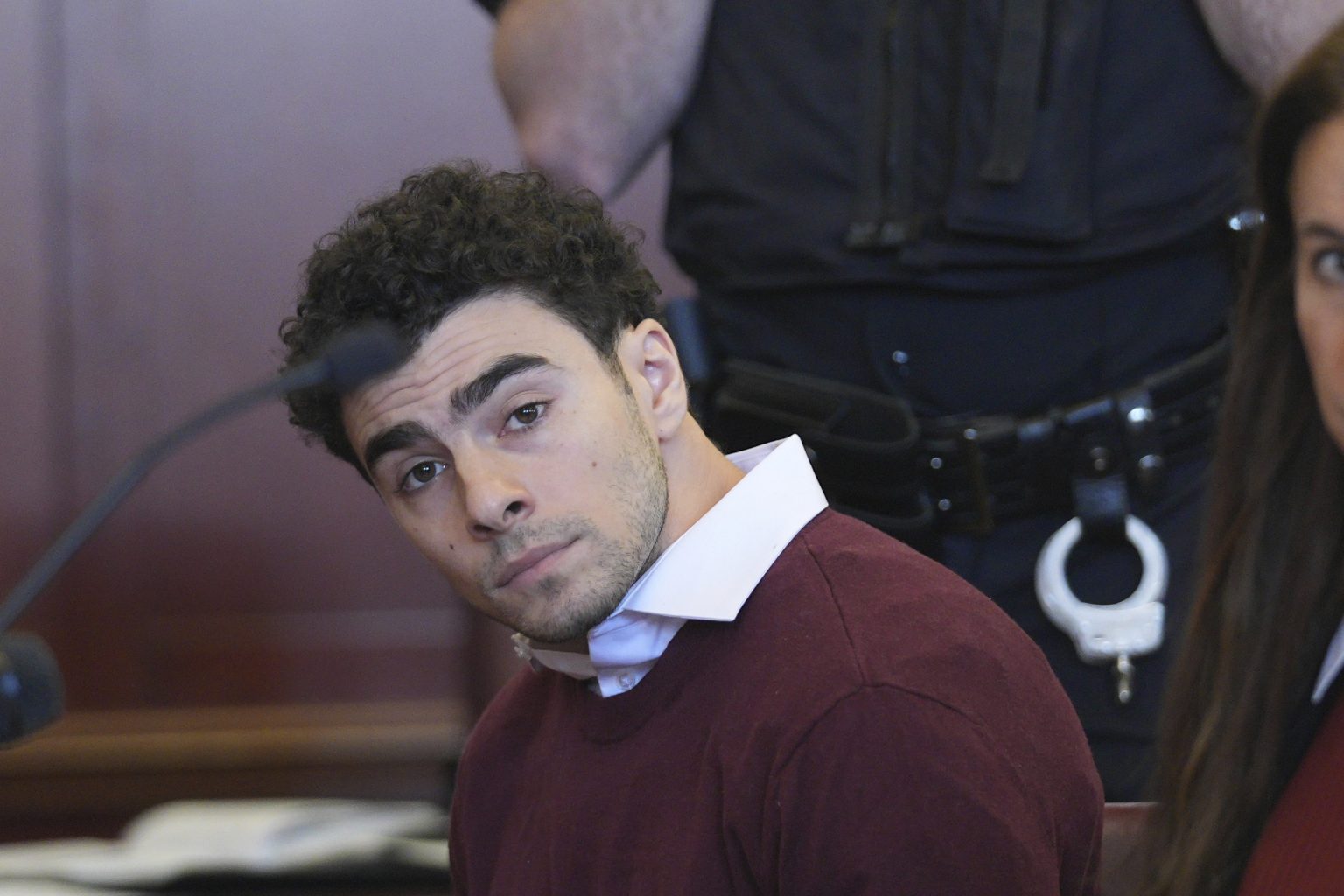The case of Luigi Mangione, the suspect in the fatal shooting of UnitedHealthcare CEO Brian Thompson, has captured public attention, and a recent poll sheds light on how college students view the situation. The poll, conducted by College Pulse and shared with Newsweek, reveals a strong sentiment among students that Mangione should face significant prison time if convicted. A substantial portion, 32%, favor life imprisonment with the possibility of parole, while another 14% believe he should receive life without parole. A further 26% advocate for a fixed-term prison sentence, and a small minority, 2%, support the death penalty. This overwhelming majority favoring imprisonment reflects the gravity with which students view the alleged crime. The remaining respondents either selected “other” or expressed “no opinion,” indicating a degree of nuance or uncertainty among a smaller segment of the student population.
The poll underscores a dichotomy in public opinion surrounding Mangione. While a significant majority of college students favor imprisonment if he is found guilty, he has also garnered support online, evidenced by a legal defense fund that has amassed over $200,000. This financial support suggests a segment of the public either questions his guilt, believes in his right to a robust defense, or sympathizes with his alleged motivations. The shooting, which took place outside a Hilton hotel in Midtown Manhattan on December 4th, led to Mangione’s arrest at a McDonald’s in Altoona, Pennsylvania, five days later. He now faces a complex legal battle, including federal charges of stalking, murder through use of a firearm, and a firearms offense, as well as multiple state charges in both New York and Pennsylvania.
The College Pulse poll provides further insights into student perceptions of the case and the broader context of healthcare. Over 1,000 college students participated in the survey, all of whom had some level of familiarity with the shooting. Interestingly, despite the majority favoring imprisonment, more than half expressed some level of sympathy for Mangione, with 26% remaining neutral. This suggests that while students acknowledge the severity of the alleged crime, a significant portion may also consider mitigating factors or question the circumstances surrounding the event. The poll also tapped into student perspectives on the U.S. healthcare system, revealing widespread dissatisfaction. A striking 70% of respondents expressed dissatisfaction, and a significant 43% attributed the high cost of healthcare to insurance companies, potentially suggesting a connection in some minds between the alleged crime and systemic healthcare issues.
The legal proceedings in Mangione’s case are ongoing, with his next federal court appearance scheduled for January 18th and a state court appearance on February 21st. He is currently being held without bail in Brooklyn’s Metropolitan Detention Center. His lawyer, Karen Friedman Agnifilo, has expressed concern about Mangione’s right to a fair trial, citing potentially prejudicial statements made by government officials. This concern highlights the importance of due process and the potential impact of public pronouncements on the legal proceedings. New York City Mayor Eric Adams, on the other hand, has publicly commended law enforcement for their efforts in apprehending Mangione, reflecting the authorities’ perspective on the case.
The unfolding legal drama surrounding Luigi Mangione continues to generate public discourse and raise complex questions. The College Pulse poll offers a snapshot of student opinion, revealing a dominant sentiment favoring imprisonment if Mangione is convicted, yet also demonstrating a degree of sympathy and a broader dissatisfaction with the U.S. healthcare system. The case touches upon themes of crime, justice, and the accessibility and affordability of healthcare, making it a significant event with potential societal implications. The contrasting views of Mangione’s lawyer and Mayor Adams further illustrate the complexities of navigating the legal system and balancing the pursuit of justice with the protection of individual rights.
As the legal proceedings progress, the details surrounding the shooting and Mangione’s alleged motivations will likely become clearer. The interplay between public opinion, legal arguments, and the broader context of healthcare costs will undoubtedly continue to shape the narrative surrounding this case. The outcome of the legal process will not only determine Mangione’s fate but could also serve as a catalyst for broader discussions about gun violence, mental health, and the challenges facing the American healthcare system. The poll’s findings, showcasing student perspectives, offer valuable insight into public sentiment surrounding these critical issues.

